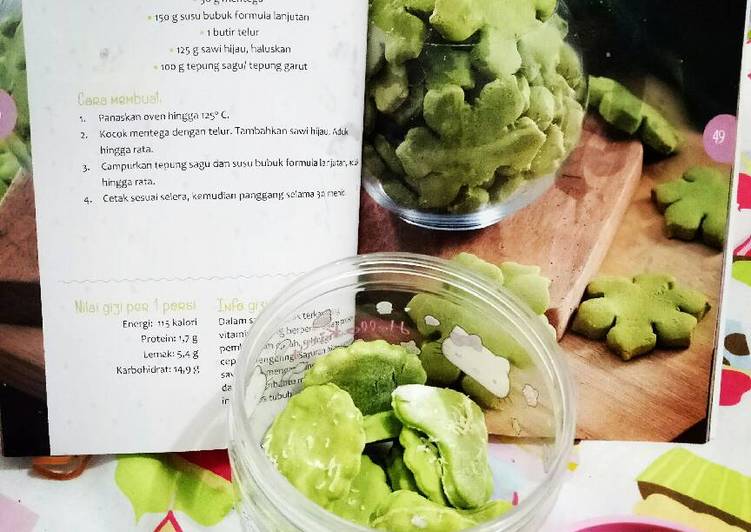Parents must pay attention to their toddlers’ diet. The children often refuse to eat for unknown reasons. It can be dangerous if it is left unchecked. According to Basic Health Research data conducted by the Ministry of Health in 2018, the prevalence of children with malnutrition status was still above 10%. We must solve these problems for a healthy next generation.
Various efforts have been made by the government. One of them is PMT biscuit food program. PMT biscuits distributed by the government to pregnant women and children under five, especially with thin (wasting) nutritional status for recovery. Every 100 grams of PMT biscuits contain macro and micronutrients designed to meet the nutritional needs of children under five. Initially, the biscuits were designed to meet the energy requirements of calorie and micronutrient contents which were quite high with 540 calories, 14 grams of fat, 9 grams of protein, and 71 grams of carbohydrate. However, in its development the PMT Toddler was formulated to contain 10 vitamins (vitamins A, B1, B2, B3, B6, B12, D, E, K, and Folic Acid) and 7 minerals (iron, zinc, phosphorus, selenium, and calcium). Each PMT Toddler pack consists of 12 pieces of biscuits or 540 calories (45 calories per biscuit). Ages 6-11 months are given 8 pieces per day for 1 month, equivalent to 20 packages of Toddler PMT. Ages 12-59 months are given 12 pieces per day for 1 month, equivalent to 30 packages of Toddler PMT.
Pay special attention
Special attention needs to be given to the effectiveness of PMT program for two year old children. At this age children are still in the learning phase in recognizing soft and dense foods. At the age of 6-23 years, children under two years old are not in the exclusive breastfeeding phase and as early as possible are introduced with liquid and soft foods and then at the age of one year old were introduced to solid foods such as those served in family foods. In the phase of recognizing these foods, the ability of young children to receive the PMT program provided is still a problem. Our children often refuse for various reasons, such as do not like it, demand variation, and other reasons which make parents and health workers feel upset.
So what should the parents do? The key to feeding children is innovation. Parents need to be more creative to provide food for children. Based on several studies, children under five are vulnerable to being bored with one type of food repeatedly given.
Lecturers and students in the Department of Nutrition FKM Universitas Airlangga tried to make a breakthrough for this problem. The biscuits can be processed into interesting food for children. One of them is Pie.
Pie is a food consisting of baked dish with various contents. The contents of the pie can be thick sweetened liquid like jam, or in the form of processed fruits, meat, vegetables.
The main ingredient in making pie is wheat flour, this material can be substituted with mashed biscuits. To increase the beneficial protein growth of children, protein isolates can be added while Flanya from sago flour and purple sweet potato flour is rich in antioxidants.
The pie was tested through various formula groups, and substitution of 10% biscuits is the most preferred formula. The results of the formulation above have been tested on a semi-trained organoleptic appraiser and have turned out to be acceptable for taste, aroma, color and texture. These results have also been tested on children and make them more interested in consuming. One serving of pie contains 120 kcal and 2.5 grams of protein to meet the needs of children for complementary food.
Pie is one alternative to attract the children to eat, besides, there are still many recipes that parents can try from the basic ingredients of PMT biscuits. It can provide parents the opportunity to give children alternatives for their food. Creative parents will bring health to children.
Author: Mahmud Aditya Rifqi, S.Gz, M.Si
The research results were published in Indian Journal of Public Health Research & Development Volume 10, March 3 2019. DOI Number: 10.5958 / 0976-5506.2019.00636.3.
Website: www.ijphrd.com : Pie Formula Biscuit Flour and Soy Protein Isolate as Alternative of High Protein Snack for Toddler





